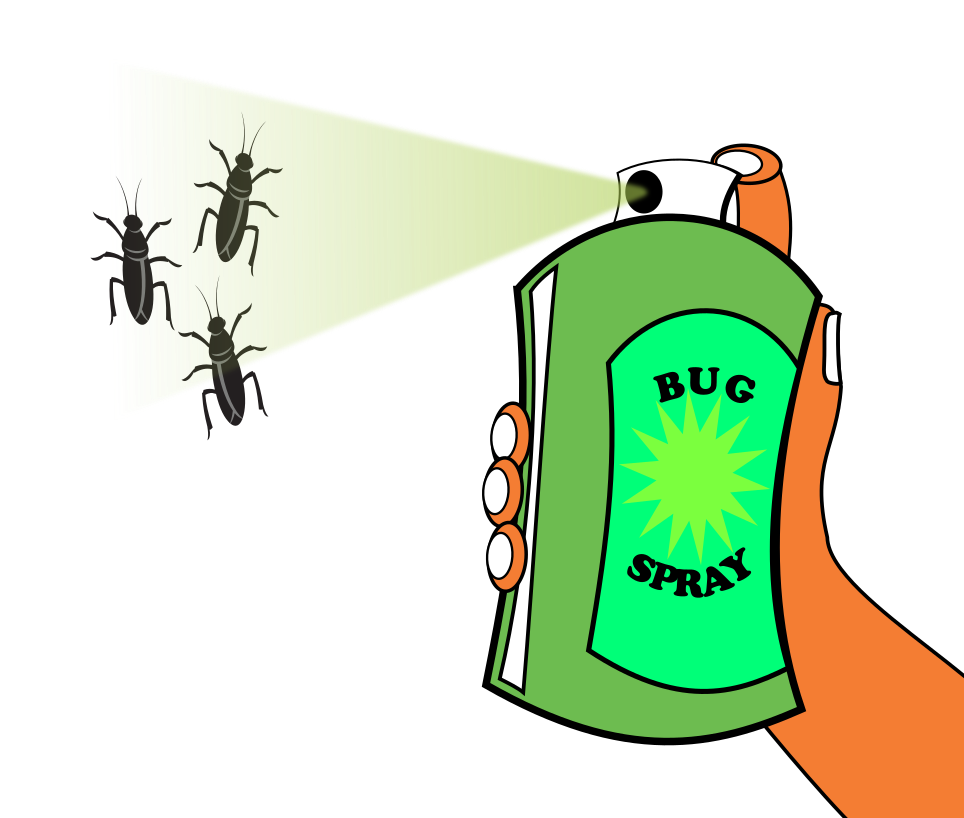Bug Spray for Dogs are very important. Most popular insects that affect dogs include mosquitoes, ticks, fleas, ants and mites. These bugs are able to transmit various diseases such as heartworm disease, Lyme’s disease or anaplasmosis which can be fatal to the pet.
When selecting a bug spray for your dog you should consider its effectiveness in repelling bugs and the application method used as well as safety measures taken when producing it. A lot of human insecticides contain DEET which is toxic to dogs causing symptoms like vomiting; excessive itching or drooling amongst others including seizures in some cases hence they should never be used on animals unless otherwise indicated by the manufacturer (or veterinarian).
Dog owners have many options when it comes to protecting their pets from bugs. Flea control products including topical treatments like drops or sprays applied onto the skin surface layers (i.e., between hairs), collars worn around the neck area near where fleas often congregate along with oral drugs which kill not only fleas but also ticks plus other biting parasites are available over-the-counter at most pet stores without requiring any prescription from a vet. Some of these natural remedies include using things like lemongrass oil mixed with water sprayed onto areas infested by insects such as mosquitoes while others involve applying peppermint oil directly onto dog’s coat especially during summer months when pests tend to be more active than usual.
You should always follow label directions carefully when using any pest control product on your furry friend(s). If they say do not use near eyes then don’t do so likewise if it advises against applying too close to mouth/nose region etc.; just heed these warnings seriously since such chemicals might irritate delicate tissues found within these parts leading up into severe inflammation hence risking overall health status of our dear pets in general – always better safe than sorry! Also let the treated area dry out completely before allowing contact with treated surfaces or materials.
Types of Bugs that Affect Dogs
Fleas
These are wingless insects that are small in size and feed on the blood of animals, dogs included. They can lead to scratching which may be severe, irritation or/and anemia in dogs. Additionally, fleas also have the capability of transmitting diseases as well as other parasites such as tapeworms.
Ticks
Ticks are spiders that stick themselves to dogs and feed on their blood; they can transmit many types of diseases including Lyme disease, Rocky Mountain spotted fever (RMSF) or anaplasmosis among others.
Mosquitoes
Mosquitos also bite dogs as well as other animals; these little flying bugs carry heartworms which is very common in pets like cats and dogs but it also affects wild carnivores such foxes or wolves living close to humans where there are still waters functioning as breeding grounds for mosquitoes. They are known carriers of West Nile virus infection among humans mostly through bites during dusk till dawn when people tend to be outside more frequently without protection against mosquitoes while they also transmit Eastern Equine Encephalitis (EEE) virus causing brain inflammation leading to death if not treated early enough especially among horses kept for recreational purposes near wetlands areas rich with these types of bugs during summer months.
Flies
Dogs often get annoyed by flies which cause discomfort by buzzing around their ears or landing on sensitive parts like eyes, nose tips etcetera; at times this may result into secondary bacterial infections due to scratching thus fly transmitted diseases need to be taken seriously because apart from being annoying pests some flies carry parasitic worms known as tapeworms
Factors to Consider When Choosing a Bug Spray
Canine safety:
- It would be best if you refrained from using bug sprays with DEET as they can poison dogs manifesting in symptoms like vomiting, itching, excessive drooling among others including seizures.
- Choose products made for dogs or consult a veterinarian before applying any insect repellent on your pet.
- Watch out while using substances containing pyrethrin and permethrin because they are highly poisonous to cats.
Efficiency against different bugs:
- Consider repellants that guard against wide range of bugs comprising mosquitoes, ticks, fleas as well as ants.
- Examine how long the protection offered by the repellant lasts since some may provide longer hours of safeguarding than others.
Ease in application:
- Select an easily applicable repellant such as spray or topical treatment.
- Follow the application instructions given by the manufacturer ensuring safety for use on your dog’s skin.
Duration of protection:
- Identify those repellants which give extended hours of guarding against bugs e.g. 12-hour Mosquitoes and Ticks protection.
- Think about how frequent one should apply the repellant vis-a-vis choosing enough coverage without necessarily having to reapply it too often.
Ingredients (organic vs. chemical):
- You can use natural repellents like lemongrass and peppermint oils which are capable of keeping off bugs from dogs.
- Essential oils or citronella products should only be used after consulting with a vet due to varying levels of toxicity they have on dogs.
Allergies and sensitivities:
- Take note of essential oils or citronella among other ingredients that may cause allergic reactions or sensitivities in your dog.
- Before attempting new repellant, consult a vet in order not to jeopardize its health.
Vet’s Best Mosquito Repellent for Dogs and Cats
Synthetic chemicals are not used in the Vet’s Best Mosquito Repellent for Dogs and Cats without DEET, which is an aerosol, with several oils of plants like citronella oil, geranium oil to keep away mosquitoes. There is no use of these chemical compounds in this composition so it can be used for mosquito repellents.
Key features and benefits:
- Contains certified natural oils which are safe for both dogs and cats aged 12 weeks or more.
- It repels effectively on mosquitoes while preventing mosquito borne diseases.
- Can be used on pets such as dogs as well as humans therefore making it an all-round product for pet owners.
- Veterinarians recommend it for use on animals.
Customer reviews and ratings:
- Its efficiency in keeping mosquitos away coupled with its natural composition has earned the product positive consumer feedback.
- A number of people have however mentioned that you need to reapply every two hours if you want full protection according to them this was not clear from the outset, so some users found themselves being bitten after an hour or so because they thought one application would last longer than that.
- Though a few clients may find difficulty using the spray bottle, overall reception about this item has been good.
Safety considerations:
- The minimum age required for animals to use this item is 12 weeks old hence safe for dogs & cats aged above twelve weeks old.
- Shake well before applying; avoid contact with eyes, mouth or even nose areas which are very sensitive.
Price range:
- An 8 ounce bottle costs $6.23 at Amazon
- A variety of prices can be found at chewy.com ranging from the lowest price of $8.29 up to the highest price of $12.34.
Protection:
- First of all you must read the manufacturer’s guide or talk to a veterinarian.
- Spray the product on your hands or cloth first, then apply it gently onto your pet’s fur, avoiding sensitive parts such as eyes, nose and mouth.
- If the product allows direct application on dogs’ skin, spray it directly to those areas which are more likely to be bitten by insects like fleas ticks mosquitoes etcetera; these include chest underbelly face among others.
Frequency of applying bug repellent for pets:
- You may need to re-apply bug-repelling sprays every four hours or after swimming if they get wet.
- However you should also refer to manufacturers’ guidelines regarding how often one should use this type of treatment over certain periods of time like days weeks months etcetera.
Parts Of The Body Where Attention Should Be Placed When Spraying Insect Repellents On Your Dog:
- It is advisable that you concentrate more on parts that can easily attract bugs; for example underbelly chest face among others.
- When dealing with long-haired dogs ensure that the substance reaches their skin since hair might offer some level of protection against pests like fleas ticks mosquitoes etcetera.
- But still avoid getting too close near sensitive organs like eyes nostrils mouth ears etcetera.
Survey of natural insecticides for pets:
It has been discovered that natural insecticides for dogs can be made from essential oils, such as lemongrass and peppermint. These oils have the power to repel bugs naturally. As compared with chemical-based ones, organic repellents are considered to be safe for animals and the environment in general.
Recipes for homemade insecticides:
- Blend equal parts witch hazel and water together, then include 20-30 drops of essential oil such as lemongrass, citronella or eucalyptus for each part.
- Do not spray it near delicate areas like the eyes, nose or mouth of your pet.
- For continuous protection reapply every 2-3 hours.
How well they work versus commercial bug sprays:
While commercial products tend to last longer than their natural counterparts which are short-lived in their effectiveness requiring frequent reapplication; however some natural repellents like oil of lemon eucalyptus have been found to be just as effective against mosquitoes at low DEET concentrations.
Safety Precautions
Any essential oil or natural repellent must not be used on your dog without consulting a veterinarian because some oils are toxic to animals.
Observe the manufacturer instructions; avoid applying essential oils directly onto your dog’s skin since they can cause irritation or make them sensitive.
Pets should not inhale citronella candles or diffusers as the fumes are harmful to their health.
Conclusion
Summary of key factors to consider when choosing a bug spray:
In order to choose a bug spray for dogs, there are some factors that one should keep in mind: for example, the issues of dog’s safety and effective action against all types of bugs; the ease of application or use; how long it can provide protection; ingredients used (natural vs. chemical) and allergies/sensitivities. These factors make sure that your dog gets a safe, efficient and appropriate bug spray.
Recommendation for the best bug spray based on the outlined criteria:
In terms of these conditions, veternerians recommend to use a bug spray for Dogs and Cats. It is created from secure essential oils, shields against mosquitoes and safe for dogs and cats that are twelve weeks old or more. The reason why this product has been positively reviewed is because it works well while using natural ingredients thereby making it an appropriate choice for those individuals who have pets and want to ensure their safety from bugs.
Ways to keep your dog safe from bugs:
- Schedule your dog’s day so that you are not playing outside when bugs are most active; if necessary, put bug-repellent clothing on her.
- Shield your dog against fleas and ticks by giving her flea and tick preventives.
- Before using them, it might be worth considering natural repellents like lemongrass or peppermint oils; nevertheless, consult a veterinarian about this first.
- Avoid bug sprays with DEET for dogs because they can hurt them or make them sick; their skin should be checked for burns after applying any chemicals onto it!
- Make sure to examine Fido’s body for bites – especially following outdoor activities – but don’t hesitate in getting him some medical attention if needed.

